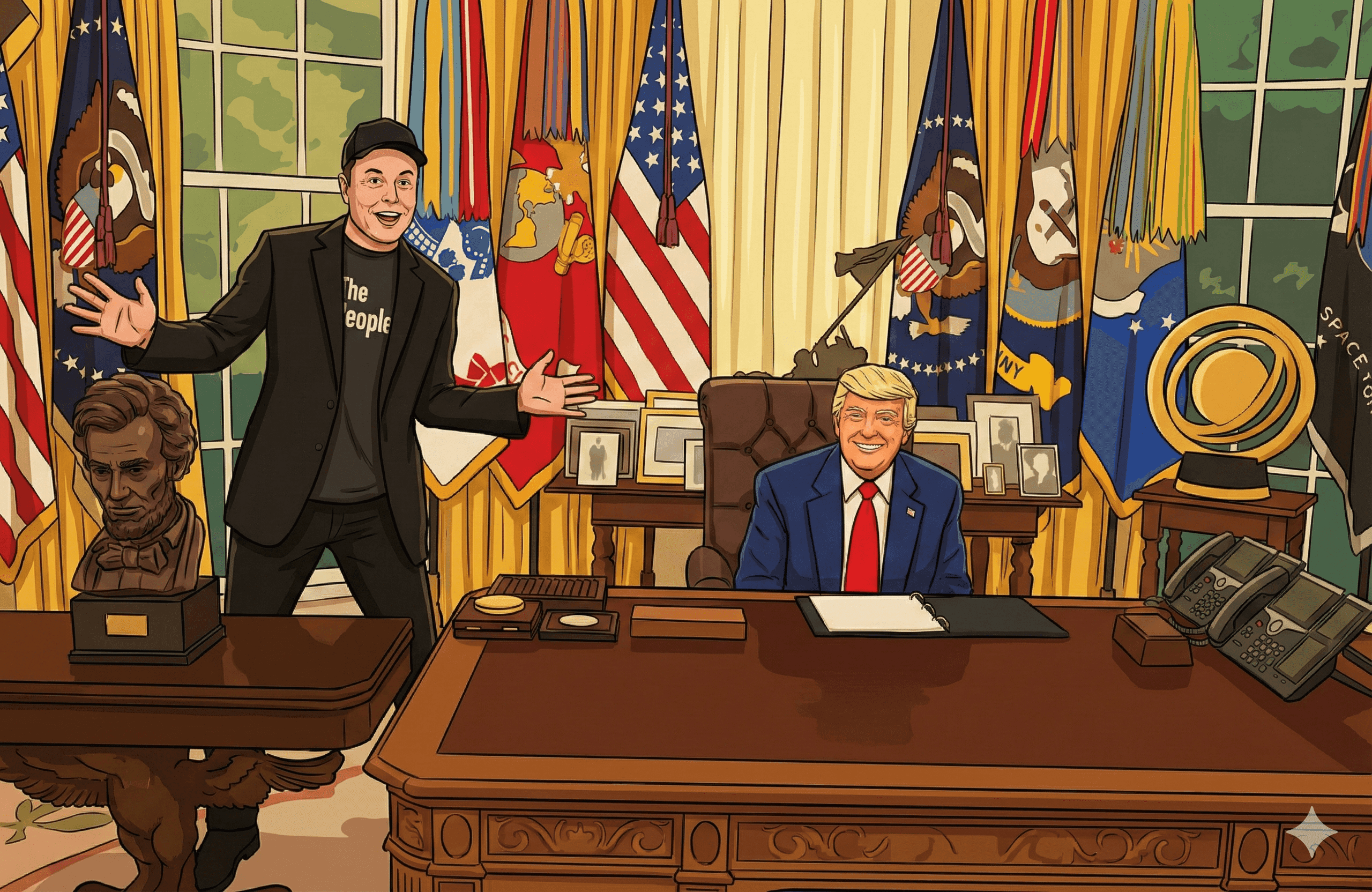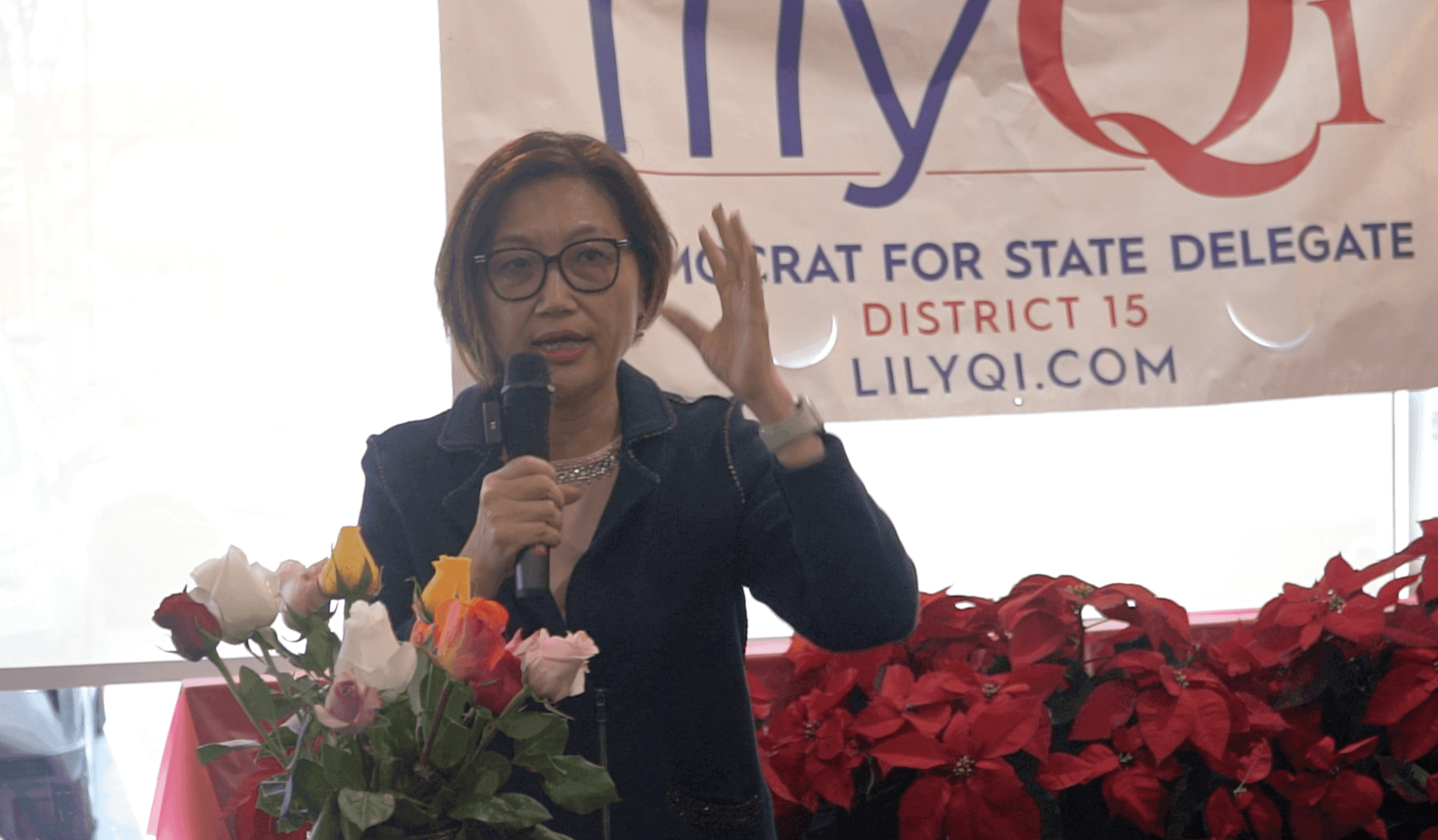A Young English Teacher Runs for Congress to Voice the Voiceless
In the embrace of familial warmth, Anita Chen celebrated with a cake, not for her birthday, but to mark her victory. It was an election watch party on Super Tuesday night. Chen had just confirmed that she secured a spot on the ballot for the general election in California’s 17th Congressional District.
It was not a definitive victory. Ro Khanna, the incumbent U.S. Representative since 2018, led in this district with over 30% more votes than Chen. Still, Chen and her team celebrated as if they'd already won the race.
Despite no prior political experience, Anita Chen, 26, has made it to the general election as a Republican candidate in a blue state. California’s unique primary election system is known as “Top-Two.” The first and second-place finishers advance, regardless of their party affiliations. While winning is a challenge, Chen is determined to fight for her chance. Her goal? To be a voice of the voiceless.
“I didn't choose to run because the numbers told me that I would win. I didn't choose to run, really to make me a role model or make a name for myself. It was just that I felt there was a story that needed to be told,” said Chen.
A Young English Teacher Jumps into Politics
Chen has dedicated herself to empowering voiceless individuals for a decade, but not through politics. She is an English teacher while pursuing her PhD in Educational Technology at Liberty University.
At just 16, Chen launched her own business, Courageous Communications, aiming to teach English speaking and writing to children. Many of her students come from immigrant families, mirroring her own background as a second-generation of Chinese American.
Chen deeply connects with her students on both cultural and personal levels because she faced similar challenges herself when she was 12.
Born and raised in the U.S., Chen is fluent in spoken English, but her writing and formal speaking skills lagged behind those expected for a 12-year-old. Her parents, whose first language is not English, couldn't assist her either, as their academic backgrounds in technology don't apply to improving her English skills.
“I just remember feeling really scared in that moment. Because it felt like the American Dream that they had come for was about to fall apart in my hands,” Chen said that fear is still fresh in her mind.
Chen overcame the challenge with the help of a teacher. Years later, she decided to become a teacher herself to assist children with similar backgrounds facing similar difficulties.
Over the past ten years, Chen has taught nearly 500 children, including a high-functioning autistic individual who is currently studying linguistics at San Jose State University, where Chen completed her undergraduate studies.
Her business offers Chen a comfortable life and job satisfaction. “And that's how I thought perhaps I could make my mark on the world to remind my students that their voice matters and that they can bring impact with their ideas,” said Chen.
She even surprised herself when she made the decision to run for Congress, which she describes as “like jumping to the moon.”
A Human Trafficking Movie Sparks Her Passion in Politics
It was a movie that sparked Chen’s interest in politics.
Last summer, Chen watched a movie called “Sound of Freedom,” which talks about human trafficking in the US. Chen said she didn’t know the United States is one of the largest destinations for child trafficking until watching the movie, which shocked her.
“And I just remember sitting in my seat, it's pitch black and these words are white across the screen,” Chen said when she recalled, “And I just thought, how can this be? How can it be in the country that I love? Land of the Free, Home of the Braves…A country that my parents chose to move to? We have some of the highest rates of child trafficking in the world?”
At that moment, Chen said she realized that her life had to shift. “I couldn't go on to do my comfortable life. I had to do something to speak out on their behalf.”
Several days later, Chen decided to run for Congress.
Human trafficking doesn't seem to be happening in the everyday lives of ordinary people. Unlike Chen, most Republican candidates prefer to concentrate on their agendas concerning economics and street crimes, which are more commonly encountered in daily life. Some voters therefore said that Chen’s campaign agenda is weak and idealistic.
“I would not have gotten to the campaign with just kitchen table issues because I think that's what we all care about. And there are plenty of people raising that voice. For me, I wanted to create a unique contribution to the trafficking survivors because, for so long, their voices have been ignored in the justice system,” Chen said, sticking to her point.
She utilized her research skills as a Ph.D. candidate to delve deep into the issue of human trafficking and understood that “when Congress doesn't do its job well, the people that hurt the most are the most vulnerable.”
Chen said that’s why she wanted to stand for the constituency to fight for the economy, border and public safety, “because there's so much on the line. So I think it just gives me an added passion and hope to speak for those who feel they can't speak.”
Since officially launching her campaign last September, Chen has spared no effort in setting up town hall meetings, campaign rallies, and fundraising events. She listened to and spoke with people from various communities, not only human trafficking survivors.
“As I've continued in the campaign, I've met so many people who feel voiceless: parents, students, small business owners, seniors… They feel voiceless. Who will speak for them?” Chen said she would. “It was with the desire to be a voice for the voiceless.”
Asian American Girls Can Also Make It to Politics
It’s not the first time that Chen envisions herself becoming a political figure.
When she was 12, Chen imagined herself one day as the Secretary of State or the Ambassador to the United Nations on behalf of the United States. However, she said she soon felt that “it wasn’t feasible for an Asian American like me to make it to politics.”
What are the feasible roles for her? Chen said she wanted to be an ice cream truck driver, enjoying free ice cream, or owning a Hello Kitty shop with free Hello Kitty merchandise. More realistic? How about a taste tester? She still dreams of becoming a food critic someday.
Chen's parents also didn't envision their eldest daughter becoming a politician. The only career idea that crossed Malcolm Chen's mind for his daughter when she was young was to become a figure skater, inspired by Michelle Kwan, a retired competitive figure skater.
Malcolm Chen didn’t expect Michelle Kwan to transition into politics and become a diplomat after her figure skating career. Similarly, he didn't anticipate his daughter diving into politics. He has many concerns when learning his daughter wanted to run for office but is determined to support her 100%.
Politics isn't a typical career path that Asian American families actively choose. Instead, fields like computer science, engineering, medicine, and law are much more commonly pursued among AAPI individuals.
However, Kelly Chen appreciates her daughter's choice.
She said that STEM-related careers were the few limited options for first-generation immigrants like herself and her husband. When they came to this country decades ago, they had to grapple with visa issues to stay in the US. With their second-generation US-born children's privilege of no language barriers or identity limitations, they can follow their hearts to find the best way to contribute to society.
During the primary debate, Anita Chen said she ran for office because she didn’t want to stay silent anymore.
She further explained to Yuan Media that “Upon reflection, there is an immigrant mentality that in order to survive, we need to stay quiet. And that's legitimate… but I’d say that my experience and my life circumstances are different than my parents. And I have the honor to be able to thrive in this society. And so to shift from a surviving mentality to a thriving mentality requires that shift of being willing to speak for ourselves and others.”
Prepare to Confront the Brutality in Politics
After making up her mind to delve into politics, Chen's first call was to Peter Kuo, the former vice chairman of the California Republican Party.
“I was pleasantly surprised,” Kuo said. After he learned Chen’s reason to run for Congress, Kuo told her that she needed to be “very, very sure” that she really wanted to do it.
“I was terrified. But I was sure,” Chen said.
People around her, even those who are not fans of her, applaud Chen for her courage in running for office as a political outsider. However, fear has haunted Chen since her first campaign speech.
“My very first speech, I told the audience: I'm terrified. But there's something greater and deeper inside me that tells me that I must speak out on behalf of those who can't speak for themselves… I can't let fear prevent me from telling you the story that needs to be told,” Chen said.
Yet, when she heard disparaging comments, Chen couldn’t help but cry. It was the first tear she shed during the campaign, just a week until Super Tuesday.
Chen had never gone after other candidates. Instead, she focused solely on her own agendas. When talking about the general election of her race, she still said that “it's also possible to choose between two great candidates.”
Richard Friesen, Chen’s speech coach, said that his next training task would be preparing her to face brutality.
“In the political arena, it's brutal. Most candidates do not have a sense of how brutal this is,” Friesen said, in order to make Chen familiar with the brutality, “I will trigger every emotion she has. I will have her in tears.”
Kuo recalled facing numerous defamations like being labeled a Chinese spy when he ran for the same seat years ago. He advised Chen to avoid playing the card of identity politics, despite being a member of the AAPI community.
“She's not running as a Chinese American. She's not running as a Taiwanese American. She's running as an American to represent all of us…And when she gets elected to Congress, she's there to serve everyone,” Kuo said.
For Chen, winning second place in the primary election was not a surprise, but beating her opponent in the general election posed considerable challenges.
The incumbent, Rep. Ro Khanna(D-CA), has represented the district for nearly six years and has extensive political experience, including serving as the Deputy Assistant Secretary of the United States Department of Commerce during the Obama administration.
Walking through the journey, Anita Chen said nothing is as scary as it seemed. Regardless of the result, she saw the journey as a gift.
“I like to think about gifts by holding them with open hands. So when I have a gift, I want to share it with people around me. And when the gift is no longer there, I'm grateful for the time that it was.”

 Pingping Yin
Pingping Yin



